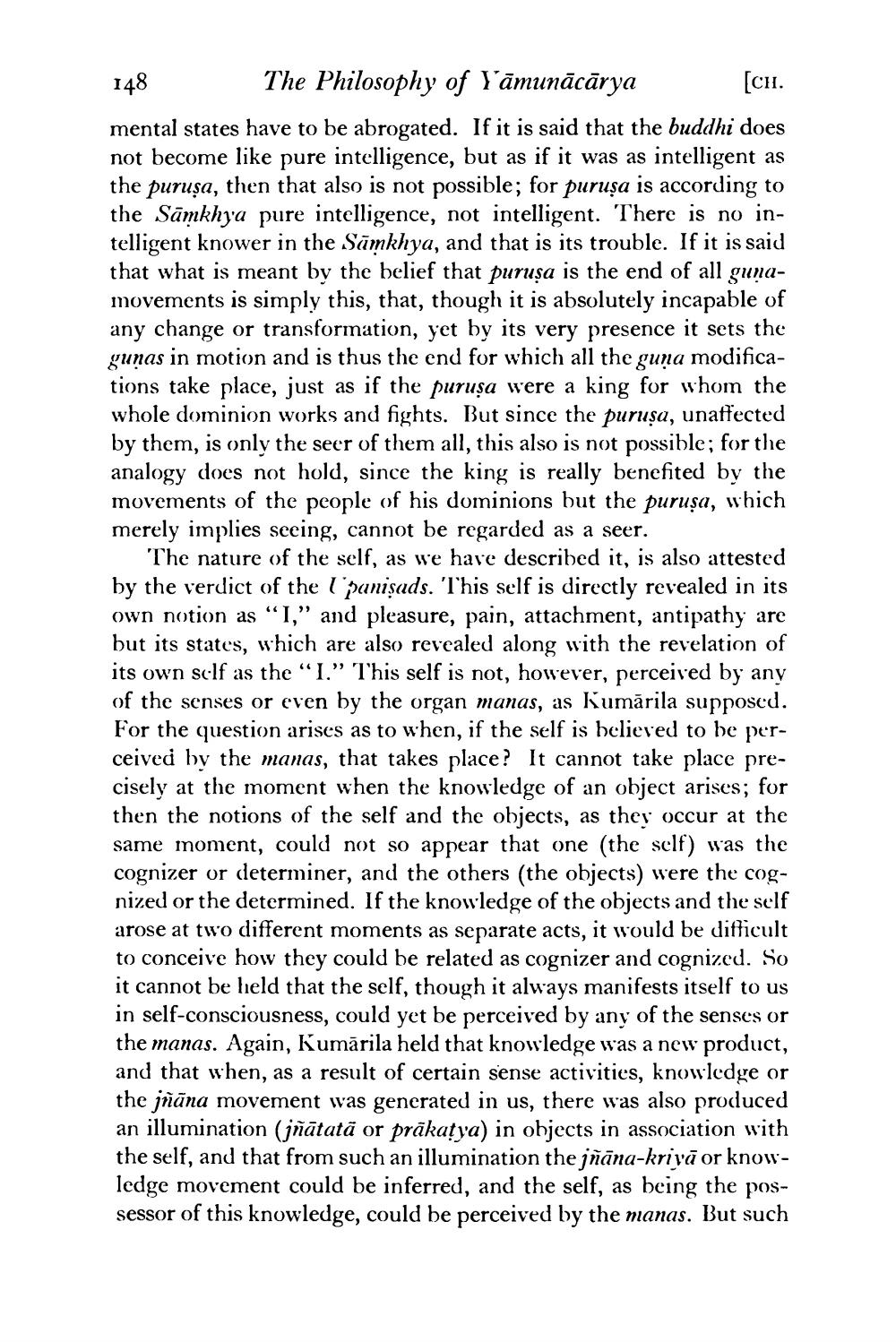________________
148
The Philosophy of lāmunācārya [CH. mental states have to be abrogated. If it is said that the buddhi does not become like pure intelligence, but as if it was as intelligent as the puruşa, then that also is not possible; for purusa is according to the Samkhya pure intelligence, not intelligent. There is no intelligent knower in the Samkhya, and that is its trouble. If it is said that what is meant by the belief that puruşa is the end of all gunamovements is simply this, that, though it is absolutely incapable of any change or transformation, yet by its very presence it sets the gunas in motion and is thus the end for which all the guņa modifications take place, just as if the puruşa were a king for whom the whole dominion works and fights. But since the puruṣa, unaffected by them, is only the seer of them all, this also is not possible; for the analogy does not hold, since the king is really benefited by the movements of the people of his dominions but the puruṣa, which merely implies seeing, cannot be regarded as a seer.
'The nature of the self, as we have described it, is also attested by the verdict of the l'panişads. This self is directly revealed in its own notion as “I," and pleasure, pain, attachment, antipathy are but its states, which are also revealed along with the revelation of its own self as the “I.” This self is not, however, perceived by any of the senses or even by the organ manas, as Kumārila supposed. For the question arises as to when, if the self is believed to be perceived by the manas, that takes place? It cannot take place precisely at the moment when the knowledge of an object arises; for then the notions of the self and the objects, as they occur at the same moment, could not so appear that one (the self) was the cognizer or determiner, and the others (the objects) were the cognized or the determined. If the knowledge of the objects and the self arose at two different moments as separate acts, it would be difficult to conceive how they could be related as cognizer and cognized. So it cannot be held that the self, though it always manifests itself to us in self-consciousness, could yet be perceived by any of the senses or the manas. Again, Kumārila held that knowledge was a new product, and that when, as a result of certain sense activities, knowledge or the jñāna movement was generated in us, there was also produced an illumination (jñātatā or prākațya) in objects in association with the self, and that from such an illumination the jñāna-krivā or knowledge movement could be inferred, and the self, as being the possessor of this knowledge, could be perceived by the manas. But such




